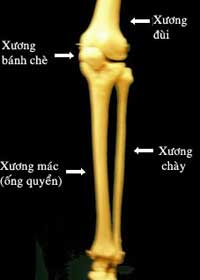Japanese scientists have successfully extracted cells from the placenta and created cells capable of developing into bone. Experiments have demonstrated that these cells can help individuals with fractures heal more quickly.
 |
|
Japan creates bone cells from placental membranes. (Photo: VNN) |
The researchers from the Institute of Physical and Chemical Research in Japan used sterile techniques to extract 10 thin slices from the innermost layer of the placenta from 10 mothers who underwent cesarean sections.
They employed catalysts to differentiate the cells from the placental membranes into the material type of bone cells. Throughout the cultivation process, the cells from 8 of the placental slices differentiated into cells capable of forming bone.
For patients with bone damage due to fractures, artificial bone grafting is often required. The research confirms that if these cultivated bone cells are implanted into the gaps of artificial bone tissue, they can assist patients in recovering rapidly. Currently, the researchers are preparing for clinical trials at Osaka University.
Typically, the regeneration of bone using cells involves the use of stem cells from the patient’s own bone marrow, but this process can have significant physiological impacts on the patient. If placental membranes can be utilized to address this issue, it could eliminate the risk of graft rejection.
The researchers plan to investigate further to clarify whether placental cells can differentiate into cells of other tissues in the body.
Tuyết Nhung


















































